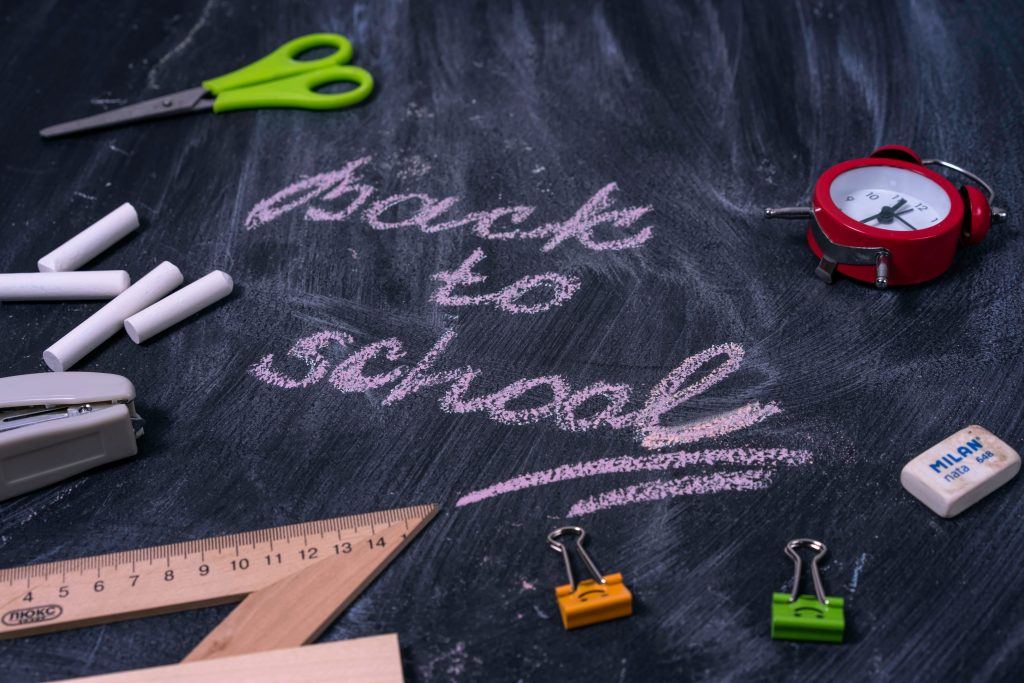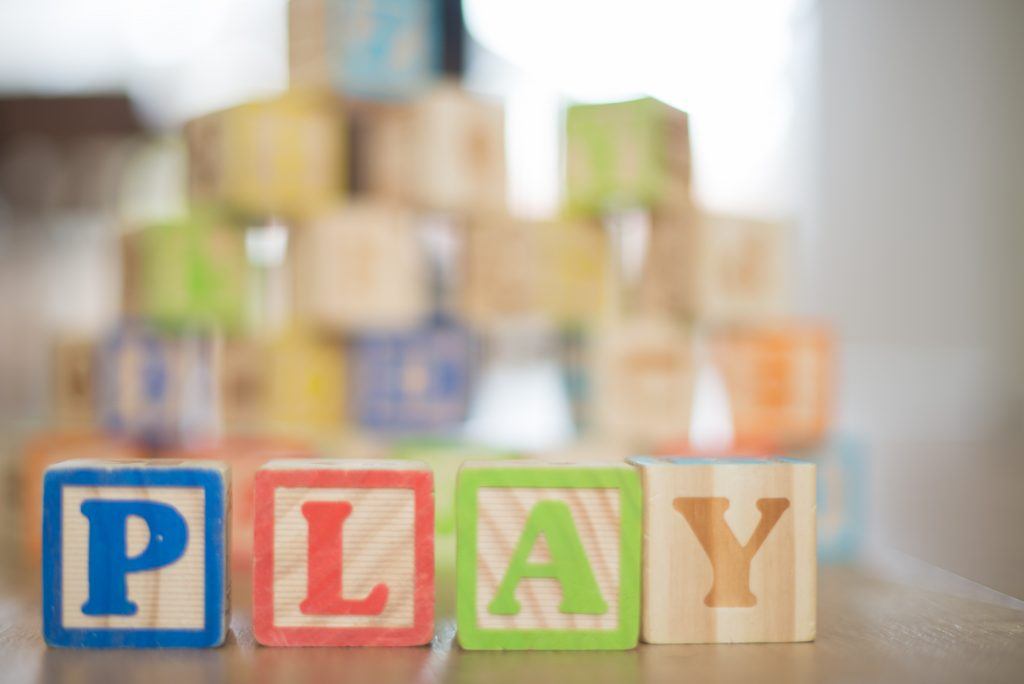As families prepare to end a long stretch at home, we hope this helpful back to school advice post written by Hannah Tranah, Childcare Development Manager at Storal Nursery is helpful and also reassuring for families as we all face sending our children back into school in the coming weeks. For us, we continue with Year 6 for the boy, being homeschooled and the teen will return to school, hopefully, full time, into year 9 and we face making GCSE choices in early 2021 for her too.

Back to school season is around us yet again, but this year parents must prepare their children a little differently due to COVID-19. It will be the first time in almost five months many of them have seen their teachers and their classmates, having been sent home in March as the coronavirus pandemic swept the UK. While schools have been busy preparing for the return of pupils and keeping up with ever-changing guidance, parents can also help their children practically and emotionally to start school.
Here are some things you should do today to ensure the process goes as smoothly as possible.
Hygiene standards and keeping things clean will be important in this pandemic era. It sounds easy enough but try to ingrain in your child’s mind the importance of washing their hands whenever they leave home, arrive at school, enter the classroom, or go into the lunchroom. Perhaps compare this habit to instinctively putting on a seat belt when you get into a car. I think the most important thing parents can do is to role model the behaviors that we wish the children to also adopt whilst they are in school, says Hannah.

As hygiene is integrated into our daily habits, establishing a back to a school routine will also aid a good start and this applies to both a morning and a bedtime routine. As they have had the longest summer holiday of their little lives, which means long days and later nights, adjusting bedtime before school starts is key. Wrestle them back painlessly by moving lights-out 5 – 15 minutes earlier each night, until you’re back on your school year schedule. There is no hard and fast rule about when children should be in more of a routine in preparation for school – children are all very different, with different needs. However, it would be recommended that children should be in good bedtime routines at least a week before starting a school term
For the early years, prepare the night routine such as taking a bath, putting on pajamas, and reading a bedtime story. This will allow some ‘quiet time’ for your child to unwind.
You could try using a picture chart to help your child learn the new routine, showing the various actions.
Make sure the bedroom environment is calm, cool and dark for sleep times and tuck in your pre-schooler when they are sleepy but still awake.
Once your child’s sleep schedule is established, stick with it, even at the weekends where possible.
Tips for 4 to 7: Set a good example for your child by establishing your own regular sleep cycle and maintain a household that promotes healthy sleep.
Tips for 8 to 12: Get your child to stop any stimulating activities 30 to 60 minutes before bedtimes, such as watching TV, playing video games, or using their phone or tablet. Where possible, it’s best to avoid having these in the bedroom at all to avoid distractions.
Mornings are always going to be hectic. But this can be controlled if everyone knows the routine and children are empowered to do their part. Come up with a morning list, with pictures, for each child before school starts; then print it out and put it where they can see it. Lists can be motivating for children, and they free you up too, since you won’t need to tell anyone to put on their outfits or grab their school supplies.
Ensuring that children maintain a routine throughout the coming weeks and months will be vital but it’s important to be flexible and parents should avoid an overly top-down approach to planning.
With school closures, it’s understandable parents may be concerned about disruption to learning. However, learning doesn’t have to be structured or strict – in fact, it can be spontaneous, or just the everyday activities that are part of your normal routine. Play and physical activity provide children with opportunities to develop their own views, put things into perspective, learn valuable lessons, test out roles, and make connections with others whilst reducing stress and supporting healthy wellbeing.

As a parent, you can foster playtime in ways that can make it even more beneficial for their developing brains and social skills. Hannah recommends taking older children on a jog or walk in the morning or evening, going on a family walk or encouraging them to play sports in the park or in your garden. For younger children, break down the activity into fun games that could involve a certain number of physical tasks like jumping jacks, skips, hops, dance etc.
Different types of play have different benefits for children and can range from using toys and objects, engaging in physical play like games such as duck-duck goose or tag, participating in outdoor play to help children use all their senses and build skills like spatial awareness or being absorbed in pretend time, when they can unleash their imagination and act out roles and scenes.
While schools were closed, parents have undertaken the role of educators to engage their children at home and support their development. Although many schools prepared packs and materials for children to use at home, there are plenty of resources available to bridge the gap between being at home and getting ready to learn.
Useful resources include:
The National Literacy Trust online zone includes reading and writing activities, book lists, videos, competitions and reading challenges.
BBC Bitesize – A free online study support resource for school-age students designed to aid students from primary school age all the way to post 16 years old.
123 Homeschool for ME – Free printable worksheets and educational activities to help making learning fun. Resources arranged by grade or subject.
The Department of Education have outlined some online education resources for home learning for schools and parents to help children to learn at home during COVID-19.
It’s worth creating a learning workspace that is a quiet, distraction-free spot for your child. Add good, natural light and make sure they have a comfy seat. If schooling is virtual, designate a place in your home just for school-related activities. It will make things feel more official and will also help your child focus when in that spot.
Children are very much influenced by how their parents behave. If their parents appear confident, calm, reassured and practical about them returning to school then children will be as well. Communication and engaging children on how school might look slightly different and if they have any concerns will help parents find simple solutions to overcome their worries and get excited to start school.
How are you feeling about back to school? Any tips or advice or worries? Feel free to comment.